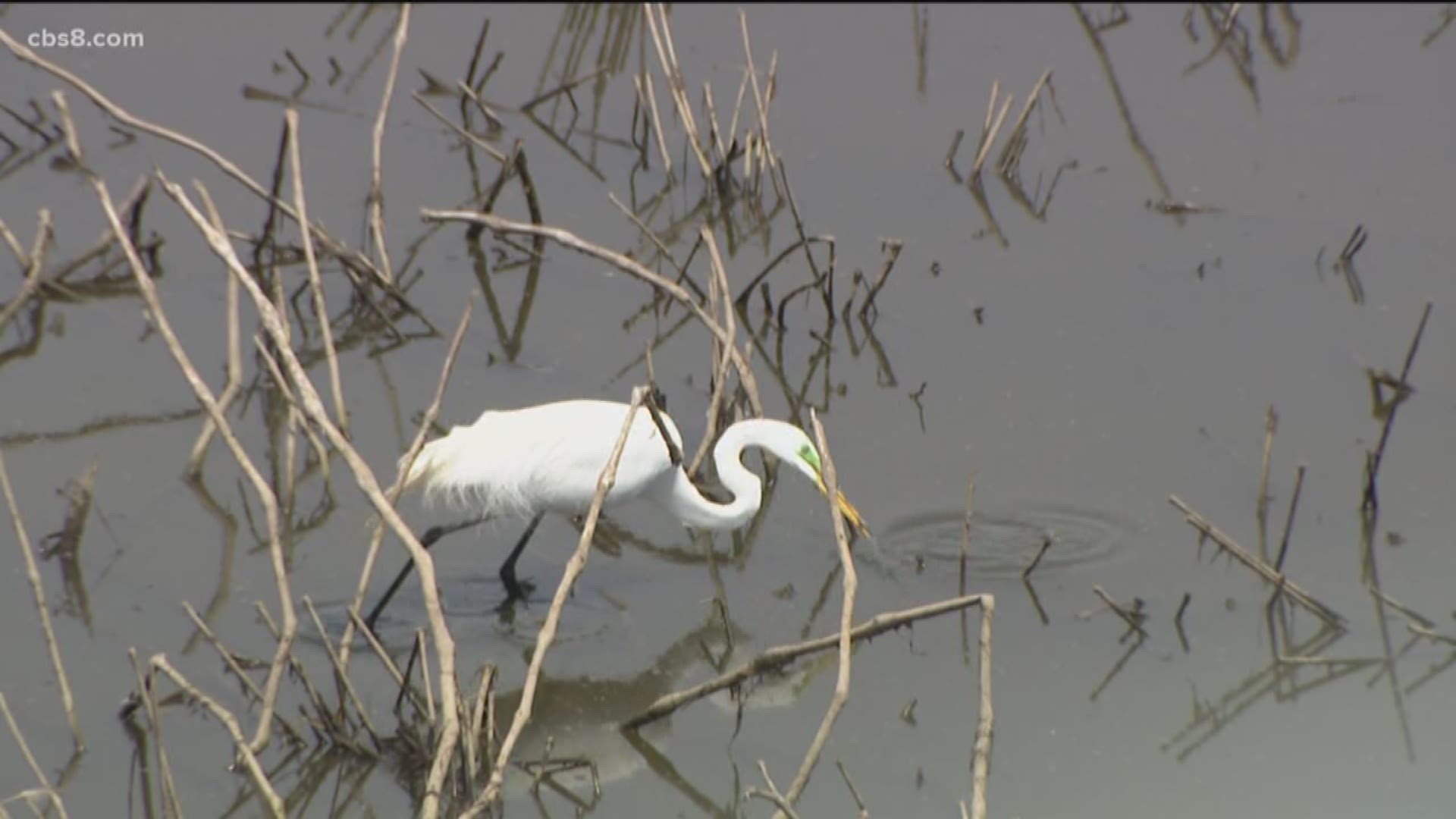SAN DIEGO — Lake Hodges is home to a lot of wildlife including Grebes – the black and white birds that can be seen year-round, but some say their nests are being destroyed over something that's completely preventable.
Brian Caldwell, a nearby resident and operator of Lake Hodges Photo Tours, visits the area often. Over the past couple of years, he has noticed an alarming trend.
Newly hatched Grebe chicks and eggs are dying because the nests they lie on can't be accessed by adult grebes when water levels are pumped too low.
“The reservoir has been dropped by two increments of three-four feet over a space of a couple of months, and it happened when all these birds had just built nests and laid eggs,” said Caldwell.
Caldwell said he has alerted the agencies involved, including the City of San Diego – who owns the property. He has also alerted the County Water Authority and SDG&E, who work together monitoring pump storage operations.
According to him, that did little to curb the issue.
“I didn't expect to see this problem occur this year so, I was very disheartened again,” he said.
Caldwell suggested limiting pumping during the heart of the nesting season – which runs from late February through July.
"It's not complicated. Just don't pump it during the nesting period. That's all,” he said.
Caldwell has since formed a coalition. Richard Halsey with the California Chaparral Institute is on board.
Halsey said it is illegal to destroy bird nests.
"So the situation is how do we prevent this from happening next year and to be honest the only way that's going to happen is a legal memorandum understanding between the agencies,” he said.
News 8 reached out to the agencies involved. The city released a statement explaining they are required to maintain the water level in Hodges Reservoir at 295 feet, but this year’s rainfall made it reach 305 feet.
The city also said Grebes are not a protected species.
The statement went on to say:
“Neither the City of San Diego or the San Diego County Water Authority intentionally or purposefully remove or destroy active nests. The nesting season for grebes can last from spring to fall, making it a challenge to avoid, and the City remains mindful of the reservoir habitat.”
The Water Authority told News 8:
“We are closely coordinating with SDG&E to ensure that the pump storage operations do not negatively impact the grebe nesting.”
California Fish and Wildlife is scheduled to meet with the Water Authority later this month in hopes of coming up with a solution.
News 8 welcomes story ideas or suggestions you may have. Email us at yourstories@kfmb.com or follow this link to fill out the submission form: Your Stories Submission.

